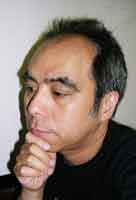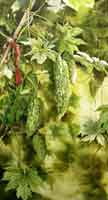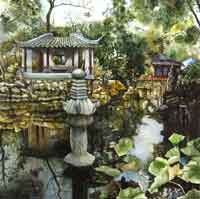Search for:
ARTISTIC CONTRIBUTIONS > Visual > East
Asian
ALFRED NG | My parents were teenagers when they
left their small village in China in the
 late 1940s and settled in Hong Kong where
I was born in 1955. My family of seven, including one grandmother,
shared a little apartment with three other families. Each family
had one private room for themselves. Everyone spoke the same dialect
of Toisanese. Both of my parents worked six days a week to support
us. Food and shelter consumed all of the money so we didn't have
extras like toys.
late 1940s and settled in Hong Kong where
I was born in 1955. My family of seven, including one grandmother,
shared a little apartment with three other families. Each family
had one private room for themselves. Everyone spoke the same dialect
of Toisanese. Both of my parents worked six days a week to support
us. Food and shelter consumed all of the money so we didn't have
extras like toys.
One day I came upon my teenage
neighbour practicing her Chinese brush painting. From that day,
I decided to draw and paint by myself using whatever material
I could find. In elementary school, I was taught to use a Chinese
brush and ink to create Chinese calligraphy. The brush and ink
became the medium for my painting, which I usually did on discarded
newspapers. The subjects that I painted at the time were chiefly
Hong Kong landmarks or the skyline at night. I had never seen
most of these in person because my parents were too busy working
to take us around to the sights. My father always got angry when
he saw me painting so I learned to hide my paintings before he
came home from work. Now, looking back, I think my painting was
a way to amuse myself and to escape from the hardship created
by poverty.
The last home that we lived
in before we moved to Canada was a cage-like structure atop a
10-storey building. One day, one of my mother's co-workers gave
her a cutting and told her that it was a night blooming cactus.
She planted it in a broken pot. Out of nowhere a large bud appeared
one day and it kept getting bigger and bigger. We could see that
it was about to open. That night, my brother, sisters and I stayed
up all night gathered around the table watching for the cactus
to bloom. Finally, at midnight, the flower slowly unveiled itself
and released an incredibly sweet scent. It was the most amazing
thing I had ever witnessed! The next morning, the bloom was wilted
and closed. Since that day, I have tried to capture that magical
moment of nature in my painting.
After we moved to Toronto, my
cousins noticed my passion for drawing and suggested that I enrol
at the Central Technical School to study art. I then continued
on to the Ontario College of Art. We settled in our own suburban
house and I noticed that my mother was spending more and more
time tending her garden in our backyard. It contained mainly Chinese
vegetables and squashes and was very different from our neighbours'
gardens. I thought my mother was trying to save money by growing
her own food, but then I noticed that in Chinatown, all of the
women had similar gardens. When I started to photograph these
Chinatown gardens, I got to know some of the gardeners and these
women told me stories very similar to that of my mother: hardship
in China, a journey to Canada, and more struggles and hardship.
I began to understand that these Chinese gardens were a way for
these women to connect with the places and people they left behind
a long time ago. These humble gardens have become an inspiration
for me.
|
|
 Bitter Melons Bitter Melons
2005
16"x36"
To learn more about this painting, click here
Painting reproduced with permission of the artist. |
|
|
 Christmas
Painting
Christmas
Painting
2008
Watercolour on paper 26"x27"
Painting reproduced with permission of the artist.
"Every Christmas I complete
a painting to dedicate to a person or an event that is important
to me. This year's painting of a Chinese Garden is for my grandfather
whom I knew very little. He was a well respected artist and scholar
back in China, the first one from his village to graduate from
a major university. He passed away before I was born.
Due to the war, none of his
paintings and writings survived. However, I inherited his artistic
genes because none of my siblings or cousins are artistic. On
a trip to China a few years ago, while in this garden, I felt
a strong connection to him."
<< top
 The project was made
possible with the support of the
The project was made
possible with the support of the
Department
of Canadian Heritage through the Canadian Culture Online Strategy
The Acrobat Reader is
available free from 